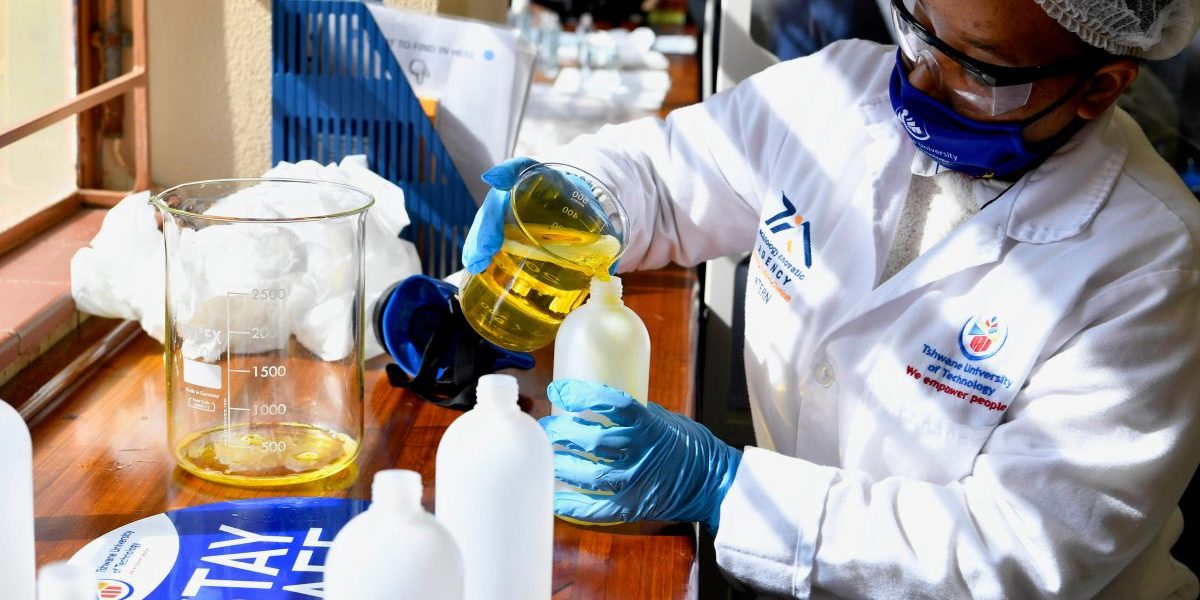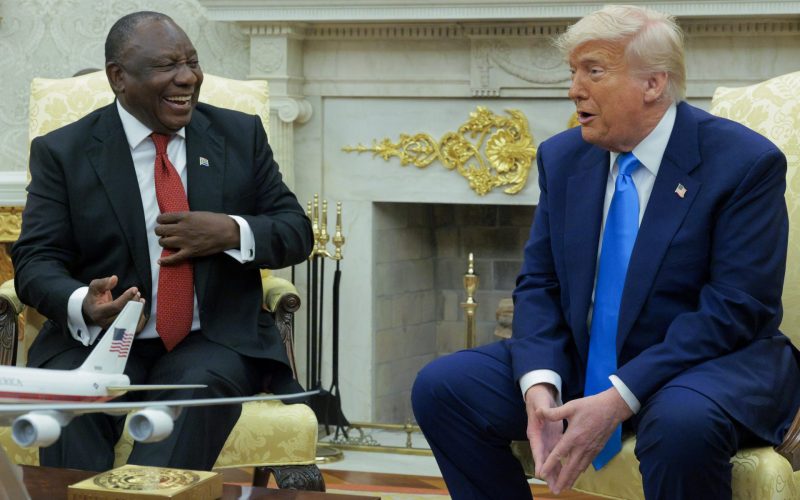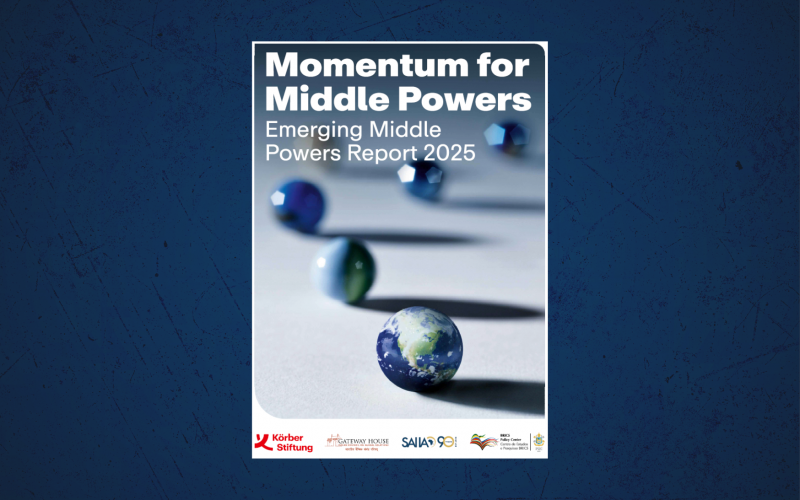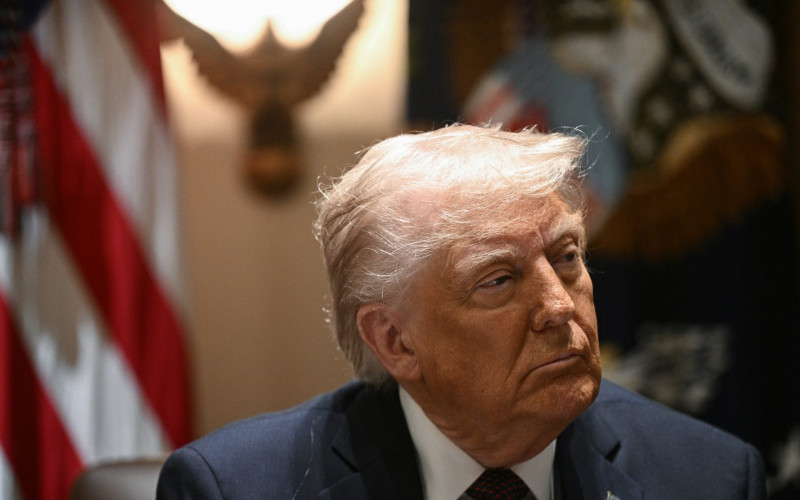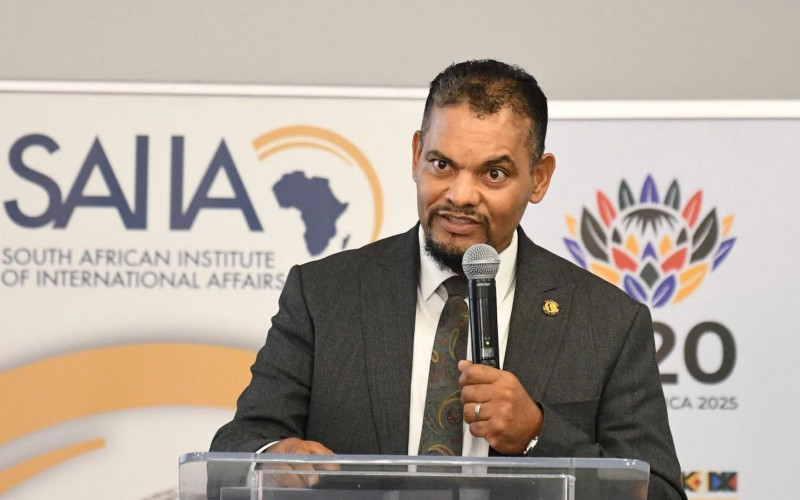Recommendations
The South African government should:
- Lead negotiations for a ‘Special Africa COVID-19 Debt Relief Initiative’ that will redirect a substantial part of Africa’s long-term external debt of $ 583 billion towards enhanced poverty relief, food security and healthcare in terms of the first three SDGs.
- Press international partners, especially China, the EU, the US, the World Bank and the IMF to support the $ 100 billion multilateral effort under the auspices of the ‘Africa Global COVID-19 Emergency Financing Package’.
- Ensure that Africa speaks with one voice at international forums aimed at providing pandemic relief for the continent, including the UN, the Forum of China-Africa Cooperation, the IMF and World Bank within the EU.
- Make changes to the ‘AU’s Joint Continental Strategy for COVID-19’ to include reference to the prevention of violent conflict as part of an effective response to the pandemic and call on the AU Peace and Security Council to act decisively in response to threats to peace and security during this time.
- Encourage Africa’s eight regional economic communities (RECs) to set up regional observatories on public health and the economy as a means of monitoring and improving member states’ responses to the current and future pandemics.
- Help set up an AU Task Team of eminent persons across the five regions to explore and design a post-COVID-19 socio-economic recovery strategy by late 2020.
- Work closely with the AU to develop comprehensive human security interventions that address the pandemic in all its critical aspects.
Introduction
The COVID-19 pandemic and its domestic and global impact will require that South Africa fundamentally rethink and review the strategic underpinnings and operational modalities of its foreign policy along two axes, namely its ‘Africa Agenda’ and its approach to multilateralism. The pandemic has laid bare the tense nexus between the country’s domestic arena and its external environment. On each front there is discord and drift, anxiety and despair, death and human suffering, a loss of jobs and economic collapse, and a crisis of confidence and leadership. What this suggests is that South Africa’s desultory, often inchoate, and ill-defined national interest can no longer be the sole pivot of its foreign policy.
In May 2011 South Africa’s first white paper on foreign policy was released with great anticipation since it presaged a more robust shift to a normatively defined and ethically driven external orientation in the interests of ‘Building a Better World’ in the spirit of Ubuntu (humanity) and Batho Pele (putting people first).1Department of International Relations and Cooperation (DIRCO), White Paper on South Africa’s Foreign Policy: Building a Better
World: The Diplomacy of Ubuntu (Pretoria: DIRCO, 13 May 2011).However, the ambition of the White Paper was squandered by recourse to a more transactional and prosaic foreign policy, as the scourge of state capture under former president Jacob Zuma ‘…undermined the very substance and neutrality of public power’.2Garth le Pere, ‘Ubuntu as Foreign Policy: The Ambiguities of South Africa’s Brand Image and Identity’, Strategic Review for
Southern Africa, 39:1 (May 2017) 96Under President Cyril Ramaphosa there seemed to be conceptual confusion about how to address the crude instrumentalism that had allowed a depreciation of South Africa’s moral and political currency in foreign affairs. The COVID-19 pandemic now provides the country with a fresh opportunity to reclaim the moral universalism and embedded idealism that were hallmarks of its foreign policy in the early years of its democratic transition and thereby, help to restore the relational logic between its global image and identity as a ‘norm entrepreneur’.3Deon Geldenhuys, “South Africa’s Role as an International Norm Entrepreneur” in In Full Flight: South African Foreign Policy after Apartheid, eds. Walter Carlsnaes and Philip Nel (Midrand: Institute for Global Dialogue, 2006) 93-107.
COVID-19 heightens vulnerability across Africa and comes at a time when intensive regional and global cooperation and a more functional multilateral system could provide ready ‘shock absorbers’ for dealing with the multiple sources of serious systemic health risks and economic threats caused by the pandemic. However, any vestige of integrity left in the functional efficacy of the multilateral system has been shaken, what with the US undermining the already unstable foundations of global order and betraying trust, which is the bedrock of alliances.4Richard Haass, ‘How a World Order Ends. And What Comes in its Wake,’ Foreign Affairs, January/February 2019, https://www.foreignaffairs.com/articles/2018-12-11/how-world-order-ends
The pandemic has brought home the government’s manifest sense of duty and obligation both to its own citizens and to humanity, since as Kant would have it, ‘we are unavoidably side by side’ joined by our mutual vulnerabilities and enduring degrees of interdependence.
The Africa connection
South Africa’s foreign policy is Afro-centric since it is ‘rooted in national liberation, the quest for African renewal, and efforts to negate the legacy of colonialism as well as neocolonialism’.5DIRCO, White Paper on South Africa’s Foreign Policy, 7.However, COVID-19 will be a severe test for South Africa’s ‘Africa Agenda’ since the pandemic is already highlighting and exacerbating already hard-pressed socioeconomic, political and security conditions across Africa concerning access to welfare, domestic resource mobilisation, capital flows, terms of trade, and managing conflict.
In the absence of rigorous and enforceable social distancing measures across Africa’s crowded and teeming urban and peri-urban metropolitan areas, the number of infections and deaths will increase. According to the UN, it is estimated that between 83,000 and 190,000 people in sub-Saharan African countries could succumb to the virus in the first year.6United Nations, Policy Brief: Impact of Covid-19 in Africa, 20 May 2020, https://www.uneca.org/publications/policy-brief-impactcovid-19-africa.Moreover, almost 475 million citizens (or 44% of sub-Saharan Africa’s population) are scattered across 143 cities with poor public infrastructure, especially in accessible health services,7Jamal Saghir and Jena Santoro, ‘Urbanization in Sub-Sahara Africa: Meeting challenges by bridging stakeholders’, Center for Strategic and International Studies, April 2018, https://www.csis.org/analysis/urbanization-sub-saharan-africa.raising the risk that 29 million Africans could be pushed into extreme poverty as a result of the pandemic as well.8United Nations, Policy Brief: Impact of Covid-19 in Africa.
Low growth figures for 2020 caused by the pandemic further exacerbate the continent’s ability to respond. From a sub-Saharan average of 2.4% in 2019, growth is expected to decline to between -2.1% and -5.1% in 2020.9Douglas Zhihua Zeng, ‘How will COVID-19 Impact Africa’s Trade and Market opportunities’, World Bank Blogs, 2 June 2020, https://blogs.worldbank.org/africacan/how-will-covid-19-impact-africas-trade-and-market-opportunitiesWe also cannot discount the pandemic’s impact on the continent’s debt burden. Between 2008 and 2018, sub-Saharan Africa’s total external debt rose from $ 236 billion to $ 583 billion, an increase of 150%.10Yinka Adegoke, ‘Africa’s Rising “unsustainable” Debt is Driving a Wedge between the World Bank and Other Lenders,” Quartz Weekly Africa Brief, 16 February 2020, https://qz.com/africa/1803280/world-bank-imf-worry-on-africa-rising-debt-to-china-afdb/;and Francisco G Garneiro and Wilfred A Koname, ‘How Much Should Sub-Sahara African Countries Adjust to Curb the Increase in Public Debt?” World Bank Blogs, 3 February 2020, https://blogs.worldbank.org/africacan/how-much-should-sub-saharan-africancountries-adjust-curb-increase-public-debtThis has naturally contributed to an increase in continental debt-to-gross domestic product (GDP) ratios: in 2012, this ratio stood at an average of 37% but, by 2019, it had increased to 55% in 24 countries and to 60% in 19 others. The content and structure of such debt is equally concerning, as countries have increasingly been leaning towards non-concessional and domestic debt with onerous interest rates. This is indicative of the deterioration of fiscal balances and the extent to which the pandemic will further add to economic distress.11Organisation for Economic Co-operation and Development (OECD) , ‘COVID-19 in Africa: Regional Socio-Economic Implications and Policy Priorities’, (Paris: OECD, 7 May 2020).
Most critically, the pandemic’s effects will stretch the already poor and understaffed health systems of most African countries, especially those that are least developed. Firstly, these systems are poorly integrated into the global chains for medical supplies, masks, pharmaceuticals, protective equipment, and ventilators while many African countries also struggle to collect reliable data on the trajectory of the pandemic. These factors place the continent’s health systems at a disadvantage from the outset. Moreover, infected patients will undoubtedly overcrowd existing health facilities and those who already have highburden diseases, such as HIV/AIDS, tuberculosis, and malaria, will suffer further from the lack of access to adequate healthcare. For example, the malaria burden across Africa’s 21 worst affected countries could double if the pandemic rages unchecked 1213 Abdul S Brima, ‘Malaria deaths could double during Covid-19 pandemic, warns WHO’, Mail&Guardian, 24 April 2020, https://mg.co.za/article/2020-04-24-malaria-deaths-could-double-during-covid-19-pandemic-warns-who/.: according to the World Health Organization (WHO), there were 213 million malaria cases in 2019 (representing 93% of the global total) and 380,000 deaths (representing 94% of the global total).13WHO, ‘Malaria Fact Sheet: Africa Region’, (Geneva: WHO, 14 January 2020).COVID-19 has already resulted in chronic shortages of medicine, healthcare workers, and protective equipment. On average, it is estimated that the additional heath financing needs of sub-Saharan Africa to prepare, respond and treat COVID-19 over 250 days will be between 1.5% and 3% of GDP.14Pia Schneider, Fedja Pivodic and Katelyn Jison Yoo, ‘How Much Health Financing Does Sub-Saharan Africa Need to Fight COVID-19 (Coronavirus)?’ World Bank Blogs, 15 April 2020, https://blogs.worldbank.org/health/how-much-health-financing-does-sub-saharan-africa-need-fight-covid-19-coronavirus. We should also not ignore the security challenges that the pandemic is also bound to pose. Africa’s conflict zones have perpetuated the movement of large populations of refugees and internally displaced persons. According to the UN High Commission for Refugees (UNHCR), sub-Saharan Africa has 26% of the world’s refugee population15See UNHCR, https://www.unhcr.org/africa.htmland 12.5 million are internally displaced 16United Nations, ‘On Forced Displacement We Can Learn from Africa’, accessed July 2020, https://www.un.org/africarenewal/news/forced-displacement-we-can-learn africa#:~:text=The%20numbers%20are%20indeed%20staggering,forced%20to%20flee%20their%20homes..Africa’s security challenges are further complicated by state fragility, gender-based violence, youth unemployment, political instability, and climate change. The ongoing violent conflict in many parts of the continent, and the threat of violent extremism affecting much of the Sahel, North Africa, the Horn, and even the Southern African Development Community region, also expose the weaknesses of Africa’s peace and security mechanisms. Here, South Africa could advance a novel COVID-19 interpretation of the ‘Responsibility to Protect’ (R2P) that considers both the security and economic dimensions in order to transcend contested notions of state sovereignty in Africa.
It is therefore important that Ramaphosa build on the promising foundation laid thus far in his tenure as AU Chair for 2020. In the context of the pandemic, South Africa’s diplomacy must be geared towards being a fulcrum of resilient continental coordination and cooperation for addressing peace and human security challenges among African countries and RECs. In order to overcome collective action problems, South Africa must demonstrate a stronger resolve to lead since the costs of inaction are too serious to contemplate.
Among others, this relates especially to the continent’s deficits in manufacturing its own medicines and the role which South Africa can play in this sector. Currently, Africa imports 90% of its pharmaceutical products from China and India which is unsustainable: indeed, the pandemic highlights the strategic nature of the African pharmaceuticals sector in a massive and lucrative market of fake, sub-standard and counterfeit products.17Michael Conway et al., ‘Should Sub-Sahara Africa Make its Own Drugs?’ McKinsey and Company, 10 January 2019.South Africa can assist with accelerating the implementation of the Pharmaceutical Manufacturing Plan for Africa and support the establishment of the African Medicines Agency 18https://au.int/treaties/treaty-establishment-african-medicines-agency/pdf/as priorities. This must be closely linked with vastly improving the technical capacity and medical reach of the AU’s African Centres for Disease Control and Prevention and its ability to work very closely with the Africa Regional Office of the WHO. Secondments of skilled experts from South Africa would greatly assist in this endeavour.
The multilateral connection
In a profound way, COVID-19 points to the need for greater normative resonance in the multilateral order and why multilateral cooperation now matters a fortiori. The pandemic is global in its scope and magnitude and converges with other global crises and threats to peace and security such as intractable conflicts, poverty and underdevelopment, disruptive trade and commercial relations, climate change, refugees and displaced persons, and growing food insecurity. Most concerning is the inability of the UN Security Council (UNSC) to deal with such crises and threats to peace and security. A new vision is necessary and the multilateral anchor in South Africa’s foreign policy, therefore, takes on added relevance against this grim context. The role of the UN will be key in shaping this vision since as former UN Secretary-General, Dag Hammarskjöld, said in 1954: ‘The UN was not created in order to bring us to heaven, but in order to save us from hell.’
South Africa must lend its voice with greater vigour and authority in supporting the UN Secretary-General’s call for a global ceasefire during the pandemic. By the end of June, 172 countries had supported the call, together with a plethora of NGOs and individuals. In July, the UNSC adopted the call unanimously.19Jess Gifkins and Benedict Docherty, ‘Coronavirus: UN Security Council Finally Calls for Global Ceasefire After US and China
Delay Talks’, The Conversation, 2 July 2020, https://theconversation.com/coronavirus-un-security-council-finally-calls-for-globalceasefire-after-us-and-china-delay-talks-141858.The ceasefire is a matter of survival for huge populations in many conflict zones who are in dire need of medical equipment, healthcare, and economic relief. While the global death and infection toll mounts, governments, especially in developing countries, are struggling to maintain basic health services to deal with the pandemic. In the General Assembly, South Africa must help to build a strong coalition for action following the adoption of a Mexican resolution – co-sponsored by 179 members – which calls for ‘international cooperation to ensure global access to medicines, vaccines and medical equipment to face COVID-19’.20UN General Assembly, Resolution 74/274 International Cooperation to Ensure Global Access to Medicines, Vaccines and Medical Equipment to Face COVID-19’, (20 April 2020) https://undocs.org/en/A/RES/74/274.South Africa’s multilateral activism and diplomatic muscle must further help to strengthen the response reach and operational capacity of critical front-line UN agencies, such as the WHO, the UN World Food Programme, the UNHCR, and the UN Children’s Fund.
In the process of coalition building and convening platforms for new norms and rules in the multilateral system, it is important that South Africa’s foreign policy be guided by strategic clarity in dealing with the quotient of global risk associated with the pandemic. South Africa’s contribution to a global risk doctrine for COVID-19 must include:
- Addressing inexorable uncertainty and how countries mitigate the future impact of the pandemic.
- Finding ways to build regional South-South and North-South alliances and cooperative mechanisms that include non-state actors.
- Helping to work through existing structures and institutions at the level of the UN and Africa to explore effective interventions for dealing with the pandemic.
- Exploring multilateral mechanisms for financing a comprehensive approach to public health in worst affected countries.
- Lending its own sophisticated medical and scientific infrastructure to the global endeavour for developing effective vaccine therapies as a global commons.
In short, the challenge of the future is to ensure that the multilateral system is made more resilient, adaptive and robust to resolve the stresses, shocks, disruptions, and vulnerabilities that inevitably are being caused by COVID-19.21Demtew Teferra, ‘COVID-19 – A Vindictive Messenger for Multilateralism”, University World News, 2 April 2020, https://www.universityworldnews.com/post.php?story=20200330150422952.
Conclusion
COVID-19 poses great risks to the African and global community but in what could otherwise be apocalyptic despair, there are also great opportunities to change the style and practice of international relations. Most crucially, there is now the normative and conceptual space for South Africa to engage in a serious review of the essential tenets and postulates of its foreign policy since there are critical lessons arising from COVID-19 with regard to how it can become a more caring country at home and a more responsible global citizen abroad.
Acknowledgement
SAIIA gratefully acknowledges the support of the Swedish International Development Cooperation Agency (SIDA) for this publication.
Professor Garth le Pere has co-authored a chapter in the forthcoming edited volume on ‘Values, Interests and Power: South Africa’s foreign policy in uncertain times’, edited by Professor Daniel D Bradlow and Elizabeth Sidiropoulos and published by Pretoria University Law Press.

